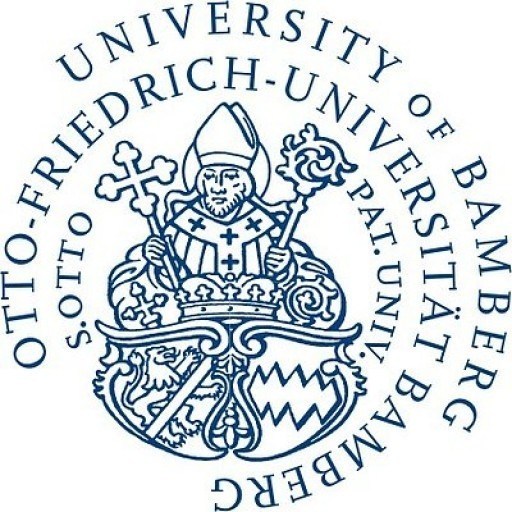Photos of university / #bruneluni
Electronic and Computer Engineering BEng (Hons) at Brunel University London offers students a comprehensive education in the rapidly evolving fields of electronics and computer engineering. This programme is designed to equip students with the theoretical knowledge and practical skills necessary to innovate and excel in industries such as telecommunications, aerospace, automotive, and consumer electronics. The course provides a strong foundation in core areas including digital and analogue electronics, embedded systems, computer architecture, software development, and signal processing. Students will engage with cutting-edge technologies and develop competencies in designing, analyzing, and implementing complex electronic and computer-based systems.
Throughout the programme, students benefit from state-of-the-art laboratories and facilities, enabling hands-on training and real-world application of concepts. The curriculum is carefully structured to enhance problem-solving, teamwork, and project management skills, preparing graduates for the demands of modern engineering careers. In addition to technical expertise, students gain critical understanding of the ethical, societal, and environmental implications of engineering solutions.
The course offers options for industrial placement year, enabling students to gain valuable industry experience, network with professionals, and apply their knowledge in practical settings. The programme is delivered by experienced academics and industry practitioners who ensure that the content remains relevant and aligned with current technological advancements. Upon graduation, students are well-positioned for employment in diverse sectors such as electronics design, system engineering, research and development, and technological consultancy.
Brunel University London’s Electronic and Computer Engineering BEng (Hons) is committed to fostering innovation, creativity, and lifelong learning, making it an excellent choice for those passionate about shaping the future of technology. The programme provides a solid academic pathway to further education or direct entry into a competitive, dynamic industry sector.
The BEng Electronic and Computer Engineering programme at Brunel University London is designed to provide students with a comprehensive understanding of the core principles and practical skills required to excel in the rapidly evolving fields of electronics and computer engineering. Throughout the course, students explore a diverse range of topics including digital and analog circuit design, embedded systems, programming, control systems, telecommunications, and computer architecture. The programme emphasizes hands-on experience, enabling students to develop proficiency in designing, implementing, and testing electronic and computer systems through laboratory work, real-world projects, and industry placements.
Students will gain a solid foundation in mathematics, physics, and computing, which underpins all aspects of electronic and computer engineering. The curriculum is structured to progressively build technical competence and problem-solving skills, starting from fundamental concepts in the early years and advancing towards specialised modules in areas such as robotics, signal processing, wireless communications, and embedded computing systems. The programme also incorporates modern software tools and simulation platforms to prepare students for professional practice.
Brunel’s strong links with industry ensure that students are exposed to current technologies and industry standards. The programme incorporates opportunities for industry placements, allowing students to gain valuable work experience and apply their academic knowledge in real-world environments. Additionally, students benefit from the expertise of academic staff engaged in cutting-edge research, ensuring that teaching remains relevant and up-to-date with technological advances.
Career prospects for graduates of this programme are broad and diverse, with opportunities in sectors such as telecommunications, electronics manufacturing, software development, automotive, aerospace, and information technology. Many graduates progress to roles involving system design, embedded programming, network engineering, or pursue postgraduate studies for further specialisation. Brunel's emphasis on practical skills, industry engagement, and a strong theoretical foundation prepares students to become innovative engineers capable of tackling complex technological challenges in a global context.
A minimum of BBC at A-level, including Mathematics and Physics or Engineering, is typically required for entry. Applicants with equivalent qualifications, such as an International Baccalaureate with a strong Mathematics and Physics/Engineering component or relevant work experience, may also be considered. English language proficiency must be demonstrated through an acceptable test score, such as an IELTS score of 6.0 overall with at least 5.5 in each component, or equivalent qualifications. Candidates are expected to have a solid foundation in mathematics, including algebra, calculus, and differential equations, as well as a basic understanding of physics principles related to electrical and electronic systems. Additional considerations may include relevant prior coursework or practical experience in electronics, programming, or computer engineering. For international students, additional documentation such as a personal statement, references, or entrance tests may be requested to assess their suitability for the programme. The university values applicants with strong analytical skills, problem-solving abilities, and a keen interest in modern electronic devices and computer systems. Some offers may be conditional, pending successful completion of current studies or the fulfillment of specific coursework prerequisites. All applicants must satisfy general university entry requirements, which include a commitment to academic integrity and potential for success in a rigorous engineering environment. Selection is competitive, and the university encourages early application. Candidates are advised to review the specific programme requirements listed on the official Brunel University London website, as requirements are subject to change and may vary depending on the applicant's educational background and country of origin.
The Electronic and Computer Engineering program at Brunel University London offers a range of financing options to support students throughout their studies. International students are advised to consider various funding sources, including scholarships, grants, and loans, to facilitate their education. Brunel University London provides scholarships specifically for international students based on academic merit, which can significantly reduce the financial burden. Additionally, students may be eligible for government-funded loans or sponsorships depending on their nationality and individual circumstances. The university also encourages students to explore external funding opportunities, including scholarships from home governments, private foundations, and international organizations. Cost of living in London, including accommodation, food, transportation, and study materials, should be taken into account when planning finances. Brunel offers various on-campus employment opportunities, allowing students to work part-time during their studies to support their expenses. Students are encouraged to apply early for financial aid and to consult the university's dedicated financial aid office for personalized advice. Furthermore, flexible payment plans may be available to help manage tuition fees over longer periods. By leveraging these diverse funding options, students can better plan their finances and focus on their academic and professional development in the field of Electronic and Computer Engineering.
Electronic and Computer Engineering at Brunel University London offers students a comprehensive education in the design, development, and application of electronic systems and computer technology. The programme integrates principles from electrical engineering, computer science, and embedded systems, preparing graduates for a wide range of careers in industries such as telecommunications, robotics, aerospace, consumer electronics, and software development. The curriculum covers core topics including digital and analogue electronics, signal processing, embedded systems, computer architecture, programming, and networks. Additionally, students have the opportunity to specialise in areas like automation, embedded systems, VLSI design, and artificial intelligence.
The programme is designed to combine theoretical knowledge with practical skills. Students engage in laboratory work, projects, and industry placements, fostering hands-on experience that is vital for understanding real-world applications. The faculty at Brunel University London are experienced researchers and industry professionals who ensure that course content reflects current technological developments and industry standards. The university also provides cutting-edge laboratories and facilities, enabling students to experiment with modern electronic components and software tools.
In addition to technical skills, students develop critical thinking, problem-solving, teamwork, and project management abilities. The programme encourages innovation and entrepreneurship, offering opportunities for students to participate in competitions, hackathons, and collaborations with industry partners. Brunel’s strong links with local and global technology companies support internships and employment prospects upon graduation.
The degree prepares students for further academic research or professional careers, with many graduates pursuing roles in R&D, system design, project management, or starting their own technology ventures. Brunel University London’s location in London provides access to a vibrant tech industry ecosystem, fostering networking and career development opportunities. The campus offers a supportive learning environment, with dedicated student services, academic support, and access to a diverse, multicultural community.
Overall, the Electronic and Computer Engineering programme at Brunel University London equips students with both the theoretical foundation and practical expertise needed to excel in the rapidly evolving fields of electronics and computing. The combination of innovative teaching, industry engagement, and research opportunities ensures graduates are well-prepared for success in national and international technology sectors.









